PALS - 2023-24
The Causes and Effects of Mass Extinctions
| When |
May 01, 2024
from 07:00 PM to 08:00 PM |
|---|---|
| Where | Monnik Beer Co., 1036 E Burnett Ave., Lousiville, KY 40217 |
| Contact Name | Lutz Haberzettl |
| Add event to calendar |
|
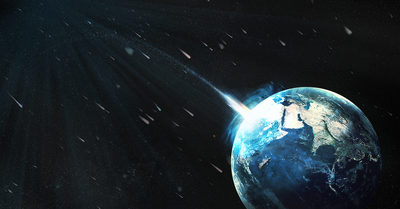 There have been five major mass extinctions and numerous “minor” extinctions on our planet. Some of the causes of extinctions are rooted in tectonic, ecological, or climatic processes as part of the earth system, but there are several extraterrestrial phenomena, including the famous asteroid impact, that can cause extinction events as well. In this talk, Dr. Kate Bulinski, invertebrate paleontologist at Bellarmine University will provide an overview of what we know about the causes and effects of the extinctions that have impacted both the living and non-living parts of our world.
There have been five major mass extinctions and numerous “minor” extinctions on our planet. Some of the causes of extinctions are rooted in tectonic, ecological, or climatic processes as part of the earth system, but there are several extraterrestrial phenomena, including the famous asteroid impact, that can cause extinction events as well. In this talk, Dr. Kate Bulinski, invertebrate paleontologist at Bellarmine University will provide an overview of what we know about the causes and effects of the extinctions that have impacted both the living and non-living parts of our world.
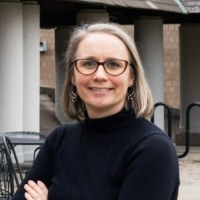
The Multiverse – A Very Old Idea
| When |
Apr 03, 2024
from 07:00 PM to 08:00 PM |
|---|---|
| Where | Monnik Beer Co., 1036 E Burnett Ave., Lousiville, KY 40217 |
| Contact Name | Lutz Haberzettl |
| Add event to calendar |
|
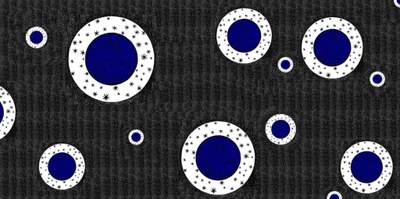 Speaker: Prof. C.M. Graney, Specola Vaticana
Speaker: Prof. C.M. Graney, Specola Vaticana
Abstract: The multiverse is an idea that is very popular, appearing in books by real scientists and in blockbuster movies that have little in common with either science or reality. It turns out to be a pretty old idea, one that goes way, way, way back... and one that is appealing because of how it solves (or not) a pretty interesting problem in a way that leaves us human beings with lots of room for our imaginations to roam. This talk will focus on a few specific ideas about the multiverse - from ancient times, to the dawn of the Copernican Revolution, to the late 19th century.
Light Pollution - From Annoyance to Heart Attacks
| When |
Mar 06, 2024
from 07:00 PM to 08:00 PM |
|---|---|
| Contact Name | Lutz Haberzettl |
| Add event to calendar |
|
| Speaker: | Dr. Petra Haberzettl, University of Louisville |
| Dr. Lutz Haberzettl, University of Louisville |
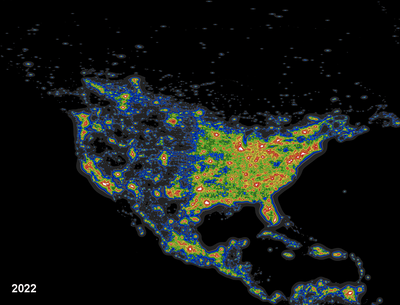 Abstract: With increasing urbanization and modern 24h lifestyle choices, light pollution has become an evident problem for everyone who wants to see the night sky at its best. While light pollution annoys every astronomer regardless of being a professional or hobby observer, artificial light at night has adverse health effects that include an increase in the risk of developing diabetes and cardiovascular disease.
Abstract: With increasing urbanization and modern 24h lifestyle choices, light pollution has become an evident problem for everyone who wants to see the night sky at its best. While light pollution annoys every astronomer regardless of being a professional or hobby observer, artificial light at night has adverse health effects that include an increase in the risk of developing diabetes and cardiovascular disease.
Statistical rainbows and infinite views of a drab world
| When |
Feb 07, 2024
from 07:00 PM to 08:00 PM |
|---|---|
| Where | Monnik Beer Co., 1036 E Burnett Ave., Lousiville, KY 40217 |
| Contact Name | Lutz Haberzettl |
| Add event to calendar |
|
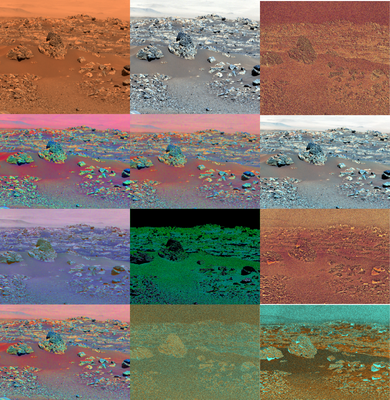 Speaker: Dr. Chase Million, Million Concepts
Speaker: Dr. Chase Million, Million Concepts
Abstract: What color is Mars? I've spent over 20 years looking at pictures of the "red" planet, and I don't know the answer. I don't even understand the question. But I'll try to explain as much as I can.
James Webb Space Telescope Look At The Earliest Galaxies
| When |
Dec 06, 2023
from 07:00 PM to 08:00 PM |
|---|---|
| Where | Monnik Beer Co., 1036 E Burnett Ave., Lousiville, KY 40217 |
| Contact Name | Lutz Haberzettl |
| Add event to calendar |
|
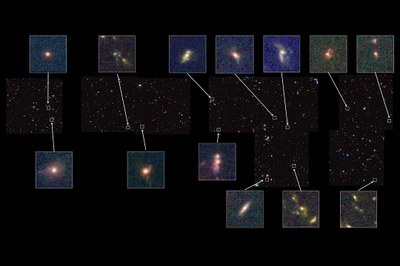 Speaker: Dr. Benne Holwerda, University of Louisville
Speaker: Dr. Benne Holwerda, University of Louisville
Abstract: one of the two main reasons the James Webb Space Telescope was launched was to look for the most distant and thus the very first galaxies. How early the Universe managed to form galaxies is still poorly understood and the search is on for the very first stars as the switched on in the young Universe. I will go over some of what we have learned and where we hope to go next.
Latest results from HST and JWST
| When |
Nov 01, 2023
from 07:00 PM to 08:00 PM |
|---|---|
| Where | Monnik Beer Co., 1036 E Burnett Ave., Lousiville, KY 40217 |
| Contact Name | Lutz Haberzettl |
| Add event to calendar |
|
Speaker: Dr. James T. Lauroesch, University of Louisville
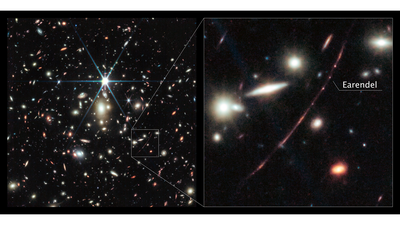 Abstract: The talk will present the last years results from the Hubble Space Telescope and the James Webb Space Telescope. Included will be images and spectra of a wide variety of objects, including planets, exoplanets, stars, galaxies, and quasars.
Abstract: The talk will present the last years results from the Hubble Space Telescope and the James Webb Space Telescope. Included will be images and spectra of a wide variety of objects, including planets, exoplanets, stars, galaxies, and quasars.
Interplanetary Spacecraft Exploration: 1982-1991
| When |
Oct 04, 2023
from 07:00 PM to 08:00 PM |
|---|---|
| Where | Monnik Beer Co., 1036 E Burnett Ave., Lousiville, KY 40217 |
| Contact Name | Lutz Haberzettl |
| Add event to calendar |
|
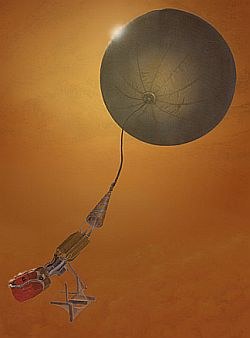
Speaker: Dr. T. Dowling, University of Louisville
Abstract: Exploration of the Solar System by spacecraft is in its 7th decade, since Mariner 2 flew by Venus in 1962. We will examine in detail the 3rd decade, which included NASA’s Voyager mission to Uranus and Neptune and Galileo Mission flyby of Asteroid Gaspra, the Hubble Space Telescope, the Russian Venera mission to Venus and the international armada of spacecraft to Halley’s Comet. This was also the decade of the Challenger disaster, which occurred during the Voyager Uranus encounter. The NASA website eyes.nasa.gov reveals what spacecraft the Deep Space Network (DSN) is listening to at the moment. We will use data from the Galileo flyby of Earth to determine whether or not there is intelligent life on Earth.
The Great North American Eclipse of 2024
| When |
Sep 06, 2023
from 07:00 PM to 08:00 PM |
|---|---|
| Where | Monnik Beer Co., 1036 E Burnett Ave., Lousiville, KY 40217 |
| Contact Name | Lutz Haberzettl |
| Add event to calendar |
|
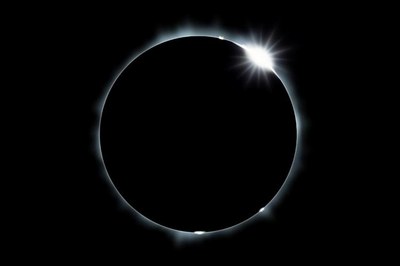
Speaker: Dr. G. Williger, University of Louisville
Abstract: We are being treated to two solar eclipses in the coming year, an annular one (partial in KY) on Oct. 14, and a total one which passes through southern IN on April 8. A total eclipse is a chance to experience the forces beyond Earth with many senses: twilight comes in the middle of the day, a few stars come out, the temperature drops, birds go quiet and dogs bark. The sun looks like a giant eye with a pupil, and we see its pearly corona. Come hear details on what’s happening and how to observe it, and why you should not wait until the next one in the US in 2024 to experience totality.
